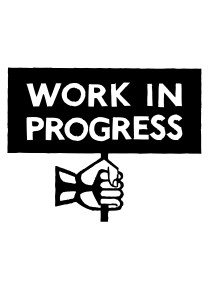I have just finished cataloguing four archive collections relating to the Labour Party in Europe. These include the papers of the European Parliamentary Labour Party (EPLP) and the personal papers of David Candler, Ron Leighton and Colin Beever; three politicians linked with the pro and anti Common Market wings of the party during the 1970s and 80s.

Funding for the cataloguing of these collections has been gratefully received from the National Cataloguing Grants Programme for Archives, a grant scheme made available by several funding trusts and administered by The National Archives. The project began in April 2016 and involved the box listing of 109 boxes from the EPLP collection, 18 from the Candler collection, 16 from Colin Beevor and 9 from Ron Leighton.

EPLP boxes in strongroom
Once box listed the collection had to be placed into suitable series and following this the rather long and arduous task of reboxing all the material in the correct order.
These collections include correspondence and reports of the British Labour Group in Europe and material relating to pro and anti-EEC organisations such as the Labour Movement for Europe and Common Market Safeguards Campaign. Researchers can view the catalogues on the museum’s website and use the collections by booking an appointment in the archive reading room.









 Originally from the Calder Valley, I am a self-funded PhD student from Bangor University, undertaking research with support from the Society for the Study of Labour History. My research is looking into the impact of immigration and racial tension on the Labour Party both organisationally, on policy formulation and on its electoral performance. This project is focused on the political dynamics of the Labour Party, and the degree to which policy development at the Party’s London Headquarters reflected the opinions of the party and voters in provincial constituencies. From the late 1950s, mass immigration had a major impact on British, predominantly urban, society. This caused problems for the Labour Party, not least because it claimed to represent a white working-class that often felt threatened and angered by immigration. Areas like the Manchester, Merseyside and declining northern mill towns like Blackburn, Batley and Oldham saw racist agitation from an early date. These regions were also a stronghold of the populist ‘right-wing’ of the Labour Party and insufficient attention has been given to the responses of these Labour members to immigration. The membership of the National Front was often suggested to have been formed from these traditional Labour ranks.
Originally from the Calder Valley, I am a self-funded PhD student from Bangor University, undertaking research with support from the Society for the Study of Labour History. My research is looking into the impact of immigration and racial tension on the Labour Party both organisationally, on policy formulation and on its electoral performance. This project is focused on the political dynamics of the Labour Party, and the degree to which policy development at the Party’s London Headquarters reflected the opinions of the party and voters in provincial constituencies. From the late 1950s, mass immigration had a major impact on British, predominantly urban, society. This caused problems for the Labour Party, not least because it claimed to represent a white working-class that often felt threatened and angered by immigration. Areas like the Manchester, Merseyside and declining northern mill towns like Blackburn, Batley and Oldham saw racist agitation from an early date. These regions were also a stronghold of the populist ‘right-wing’ of the Labour Party and insufficient attention has been given to the responses of these Labour members to immigration. The membership of the National Front was often suggested to have been formed from these traditional Labour ranks.




 We are delighted that we will be hosting the
We are delighted that we will be hosting the